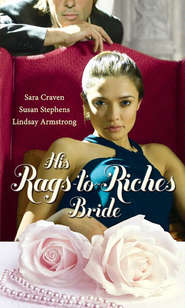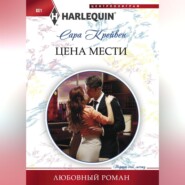По всем вопросам обращайтесь на: info@litportal.ru
(©) 2003-2024.
✖
Gift For A Lion
Автор
Год написания книги
2018
Настройки чтения
Размер шрифта
Высота строк
Поля
She could not take her eyes from his face. He was not conventionally handsome, with that high-bridged nose and the sardonic curve of that thin-lipped mouth, but he was—arresting, she supposed. Her gaze took in the thick tawny hair hanging almost to the collar of his cream silk shirt, and the way his heavy lids hid the colour of his eyes.
He reminded her of someone—she racked her brain trying to remember whom. It was something to do with a picture she had once seen—not a photograph. She felt instinctively it had not been as modern as that. And then she remembered. It was a reproduction in an art book she had once looked through—a portrait of some Renaissance prince—and he looked like this man who sat only a few yards away from her.
Just as she was telling herself she was being absurd, he spoke, his voice low and resonant. ‘I am not a peepshow, signorina.'
Joanna flushed, angry that for all his apparent absorption he had known of her presence. She felt like a child again, caught peeping through the banisters at her father's guests.
Instinctively she drew the dressing gown more tightly around her and re-fastened the sash, then lifting her head with an air of confidence she was far from feeling, she marched out from behind the screen and across the room to the desk.
‘Who are you?’ she demanded, hating the huskiness that nervousness had engendered in her usually clear voice.
‘I am the master of Saracina.'
The sheer arrogance of the simple statement almost took her breath away. She was aware that she was gaping at him, and furiously took control of herself.
‘I see,’ she said, allowing the inflection to be deliberately sarcastic. ‘Then you can arrange for me to leave this island and return to Calista and my friends.'
‘I could,’ he agreed. He still not looked at her, but was studying the papers in his hand.
She forced herself to give a light laugh.
‘You speak as if there was some doubt.'
‘No doubt at all, signorina. I could, but I will not.’ He looked at her then, and she gasped as her eyes met his, tawny eyes, flecked with gold, vividly alive and wildly at variance with the almost patrician hauteur of his face and voice.
‘Are you implying that I am some sort of prisoner here?’ In spite of herself, she faltered over the hateful word.
‘It is more than an implication, signorina. It is the simple truth. You are my prisoner, and you will remain here until I decide you may go.’ He reached towards an ornate silver handbell on the desk. ‘I will have Josef conduct you to the room I have had prepared.'
‘Wait,’ she spoke sharply, and flinched as his eyes flicked haughtily over her. ‘I mean—this is ridiculous! You know nothing about me, or even who I am. You can't just keep me here against my will.'
‘Even though you came here against mine?’ He spoke softly, but a shiver drew an icy finger down her spine. She decided desperately that the only thing to do was brazen it out.
‘If that is the case, then I'm sorry,’ she said. ‘I—I didn't realise this was private property. I can assure you I won't make the same mistake again.'
‘But you will make different mistakes,’ he said slowly. ‘The mistake of lying to me, for example.'
‘I haven't lied to you,’ she protested, aware of the telltale pounding of her pulses.
‘No? Then it was not you who danced in a bar at Calista last night? It was not you who quarrelled with your friends when you were all warned quite clearly to keep away from this place? The warning seemed definite enough to your friends. You are the only one who has chosen to disregard it. The only thing that need concern us now is your reason for doing so.'
Joanna was silent. She realised she would rather die than admit to this haughty Italian—bandit—that she had come to Saracina out of sheer wilful perversity, precisely because she had been told not to.
‘My reasons are private and need concern no one but myself,’ she said eventually. ‘It's true I was warned against coming here and equally true that I'm sorry I ever set foot on the place. Is that enough for you?'
‘Alas, no.’ If the words were regretful, the tone was not. ‘You came, and for the present you must stay.'
‘Indeed?’ Joanna's nails bit into the palms of her clenched hands. ‘You may change your mind when you hear who I am. My father is not entirely without influence, and when he hears about this—outrage …'
‘The only outrage has been committed by yourself. You have trespassed where you had no right.’ He sounded almost bored. ‘And your identity is no mystery, Signorina Leighton.'
He opened a drawer in the desk and removed a folder which he tossed across the polished surface to her. Joanna opened it almost mechanically, numbly registering that her name was neatly printed on the manilla cover. Inside there was a photograph of herself, blown up from a newspaper print of some mouths before, she noticed, as well as every press cutting in which she had ever been mentioned, all neatly tabulated.
‘Where did you get hold of this?’ she demanded huskily, throwing it down on the desk so that some of the contents spilled out.
‘That need not concern you,’ he said. ‘But it may help to convince you of my sincerity when I say that your identity makes no difference to me at all. You are a very well known young woman.'
‘And my father is a very well known man,’ she completed for him, savagely. ‘So you're going to hold me for ransom?'
He sighed elaborately. ‘No, signorina, I am not.’ He opened the file again and looked at some of the cuttings, his brows raised. ‘But if I did, what price would you put upon yourself, I wonder? Not very high, perhaps, if these are anything to go by.'
She felt her cheeks grow warm. ‘Are you sure they tell the whole story?’ she asked, wondering why she should attempt to justify herself to this man.
‘Young, spoiled, headstrong—the pattern doesn't seem to have altered greatly.’ He closed the folder and tossed it back into the drawer.
‘You seem to have gone to a great deal of trouble.'
‘It is one way to become acquainted with a prospective guest.'
Joanna's legs were shaking under her. Frowning a little, he waved her towards a highbacked chair with a leather seat, similar to the one he was already occupying. ‘Sit down, signorina, before you fall down. My floor is hard and it would be a pity to bruise a second time such exquisite and utterly pampered skin.'
She sat frozen as the implication of what he had said sank in.
‘Whose dressing gown is this?’ she asked unsteadily.
‘It's one of mine.’ He spread his hands in a mockery of an apology. ‘It is not worthy of you, signorina, but with no women in the palazzo, suitable garments were difficult to come by in an emergency.'
‘Emergency?’ This wasn't—couldn't be happening to her. It was a nightmare, and oh God, let her waken from it soon.
His voice went on. ‘Your clothing—such as it was—was soaked from your ill-advised attempt to escape from my men. I could not leave you to catch pneumonia.'
‘Then it was you …’ The shame of it prevented her from finishing her words. The caress of the silk on her skin was suddenly abhorrent as she visualised herself naked and helpless under this man's disturbing amber gaze.
‘Don't look so stricken, signorina,’ he said crisply. ‘You didn't deny my men the privilege of a glimpse of your undoubted beauty. Am I supposed to be less human? Or would you have preferred their attentions?'
Her eyes felt as if they were burning, but she was incapable of tears. Finally she lifted her head and looked at him. He was leaning back in his chair, out of the range of the lamplight, and his expression was hidden from her.
‘If you wanted to totally humiliate me, then you have succeeded,’ she said quietly. ‘I can only hope that you're now satisfied and that I can leave without any further delay.'
‘Has humiliation also rendered you deaf, signorina? You are not leaving.'
‘I think you must be mad!’ she fought against the bubble of hysteria rising within her. ‘You can't keep me here—surely you see that? My friends know where I am. They'll come and search for me, and you can't take all of us prisoner.'
‘I have not the slightest intention of doing so, and I would not count on any search being made. Your friends believe that you are my willing guest.'
‘Why should they believe that?'
‘Because they have received a note, presumably from you, which tells them so, and asks them to send on your luggage.'













